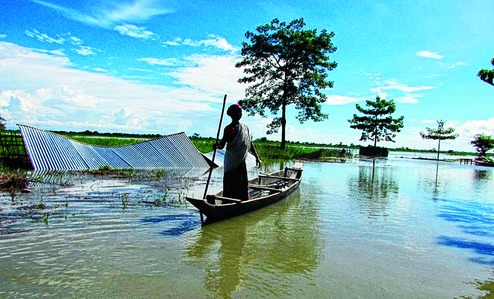
Guwahati, April 20: The World Bank will aid in setting up a Northeast centre for excellence in water management, which will serve as a hub to manage floods and other growing water issues of the region, under a $ 175million National Hydrology Project.
The agreement inked between the Centre and World Bank recently will strengthen the capacity of the institutions to assess the water situation in their regions and reduce vulnerability to recurring flood and drought, saving hundreds of lives and livelihood.
The project will now scale up the successes achieved under two earlier hydrology projects in the Ganga and Brahmaputra-Barak basins. Apart from helping states that have already benefited from the earlier projects to further upgrade and complete monitoring networks, it will help new states to better manage flows from the reservoirs. The northeastern states were not included in the earlier hydrology projects.
A World Bank spokesman said the project would support the establishment of a Northeast centre for advanced water management and hydro-informatics centres in the states. "The Northeast centre will serve as a hub to manage the floods and other growing water needs of the region in collaboration with international organisations/institutes. In the centre, all the partner states will be members and drive its agenda," the official said.
Floods are a perennial problem in the Brahmaputra basin causing loss of lives and economic loss to the state governments.
"The Northeast centre will be set up under the water resources knowledge centres subcomponent, which will support the establishment or strengthening of 'centres of excellence' to develop expertise and a pool of experts. It will ensure that the knowledge, tools, and innovations developed under the project are applied to improved water resources management. It would be responsible for executing targeted activities in the light of the common challenges and needs in the region. The location for the centre for excellence has not yet been decided," the official said.?
Under the project, new hydromet stations will be installed in the northeastern states while other states would upgrade the existing ones.
The environmental assessment report of the project says compared to other major rivers in India, the Brahmaputra is less polluted but it is facing a problem of petroleum refining units draining most of the industrial load into the river along with other medium and small industries.
On ground water quality, it said at many places in the basin, an excess of fluoride, iron and arsenic has been recorded. On surface water quality in the Barak basin, the report says it has good quality groundwater except for high dissolved iron content at some places, and very few places are affected by salinity.











